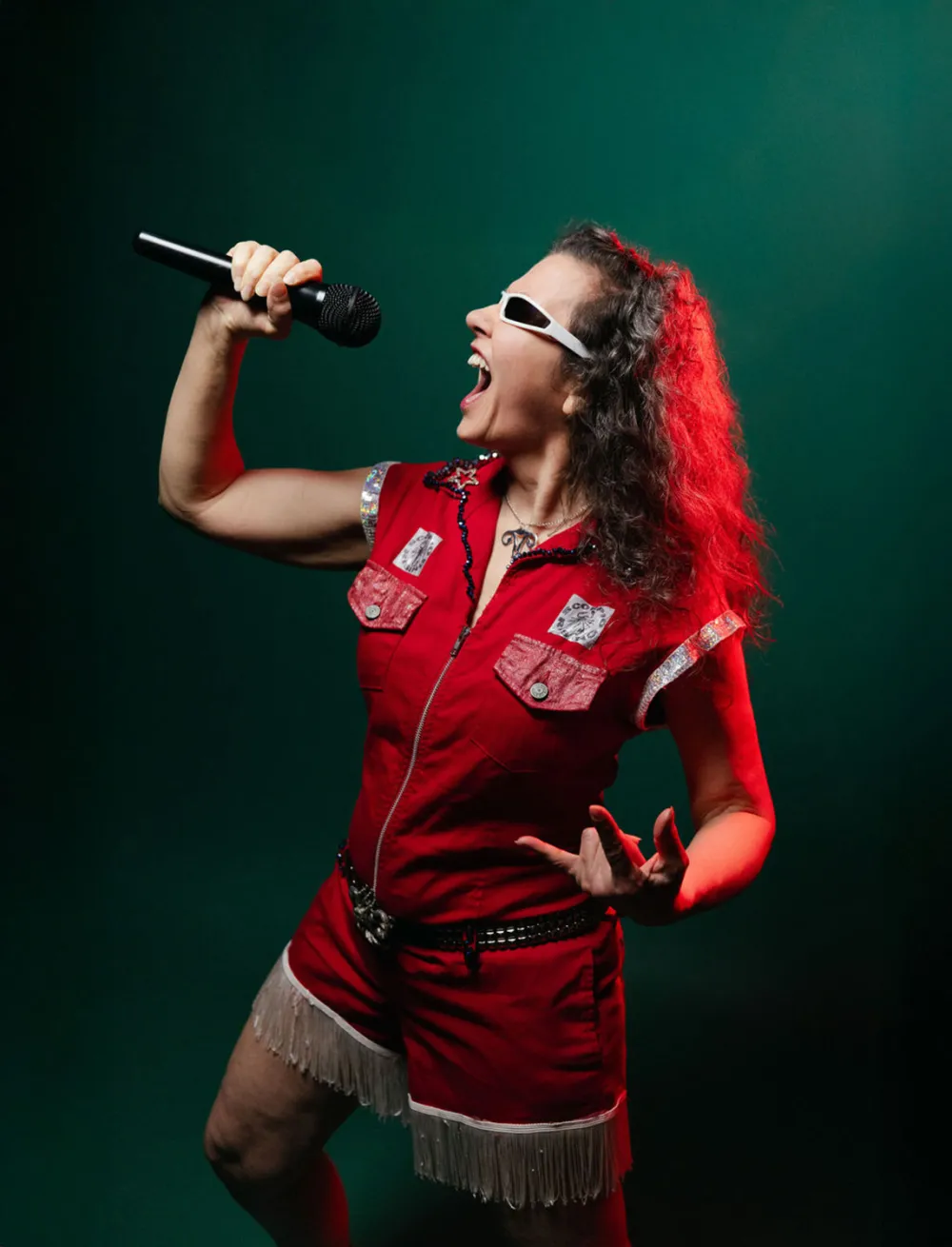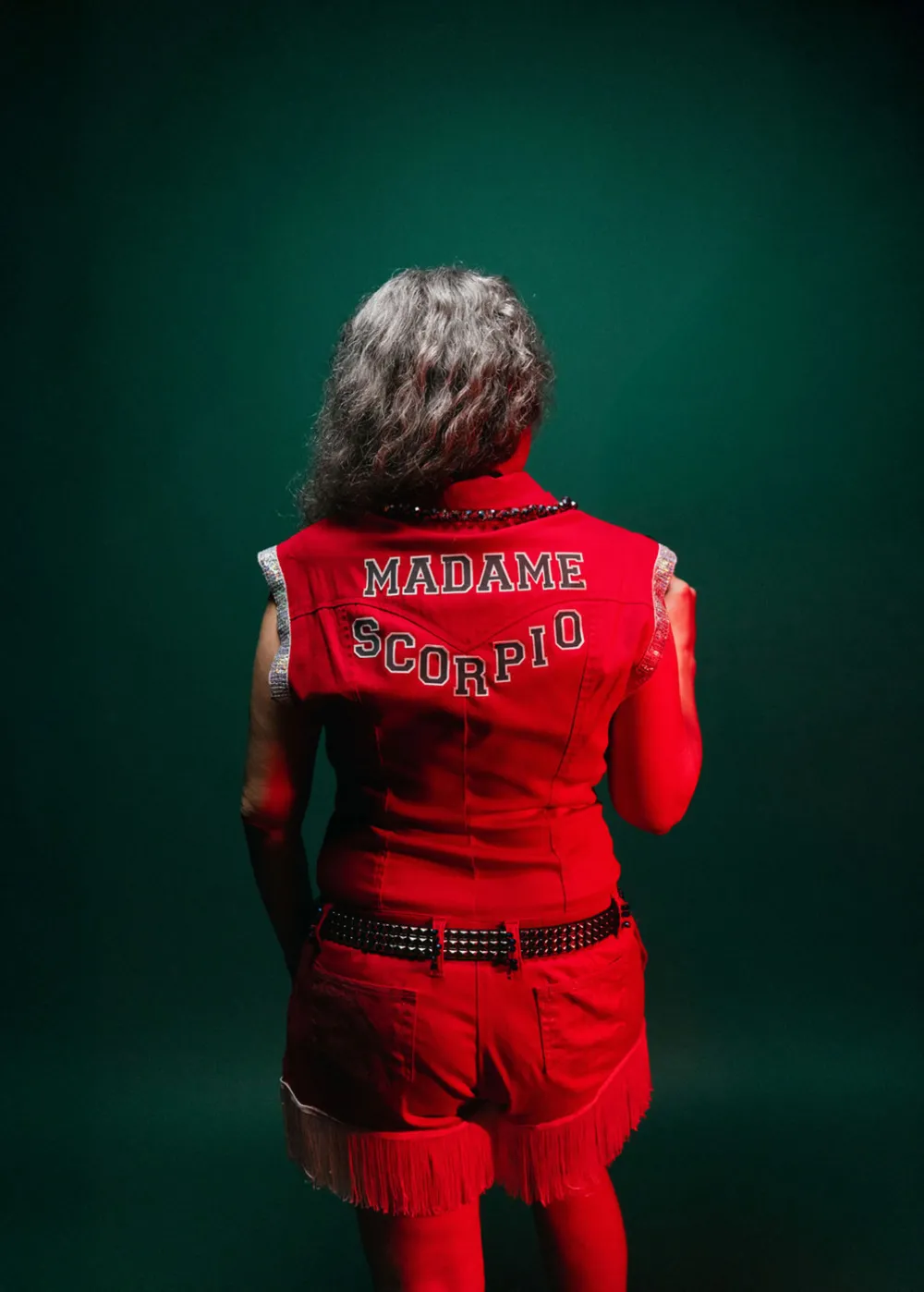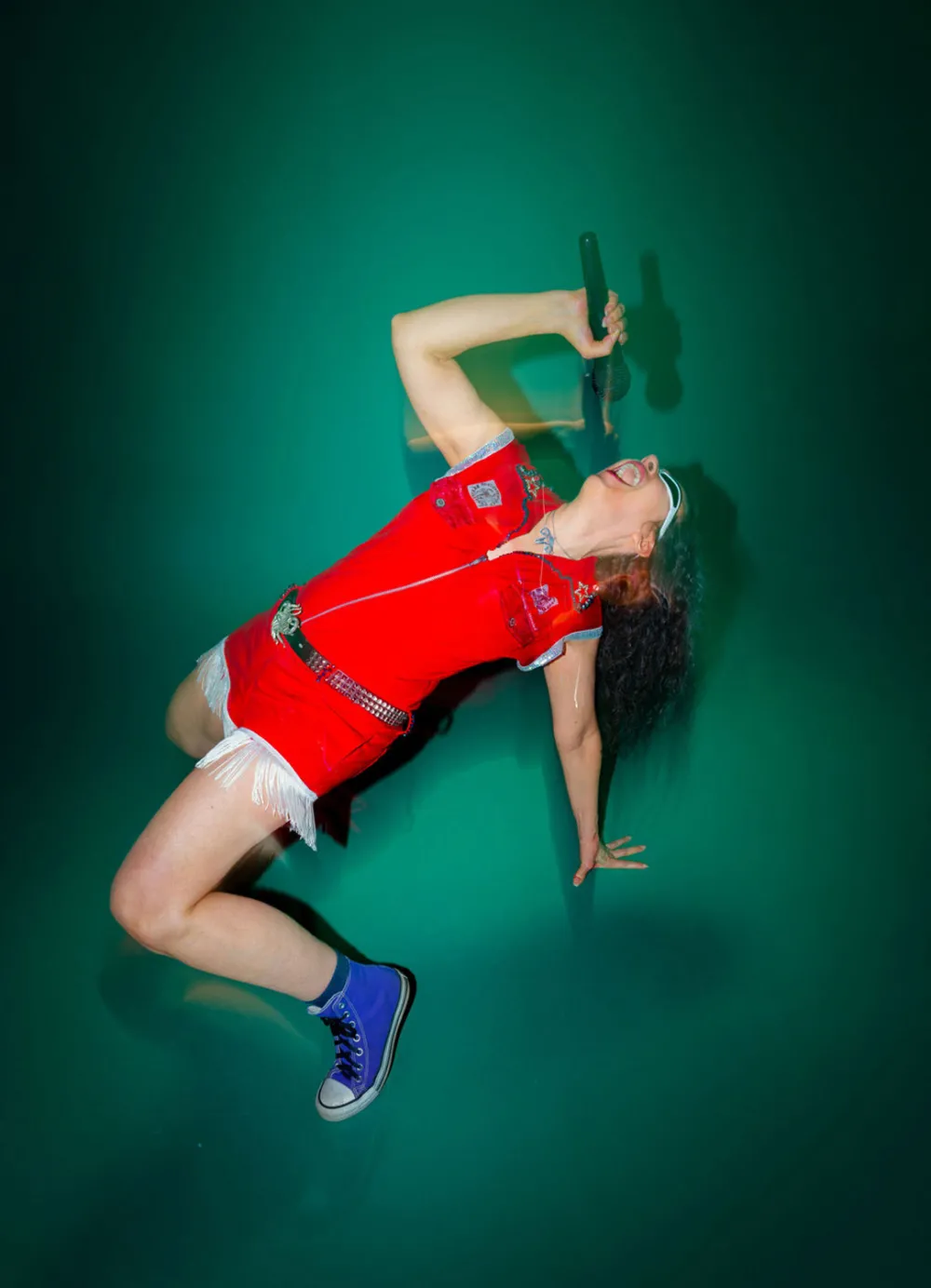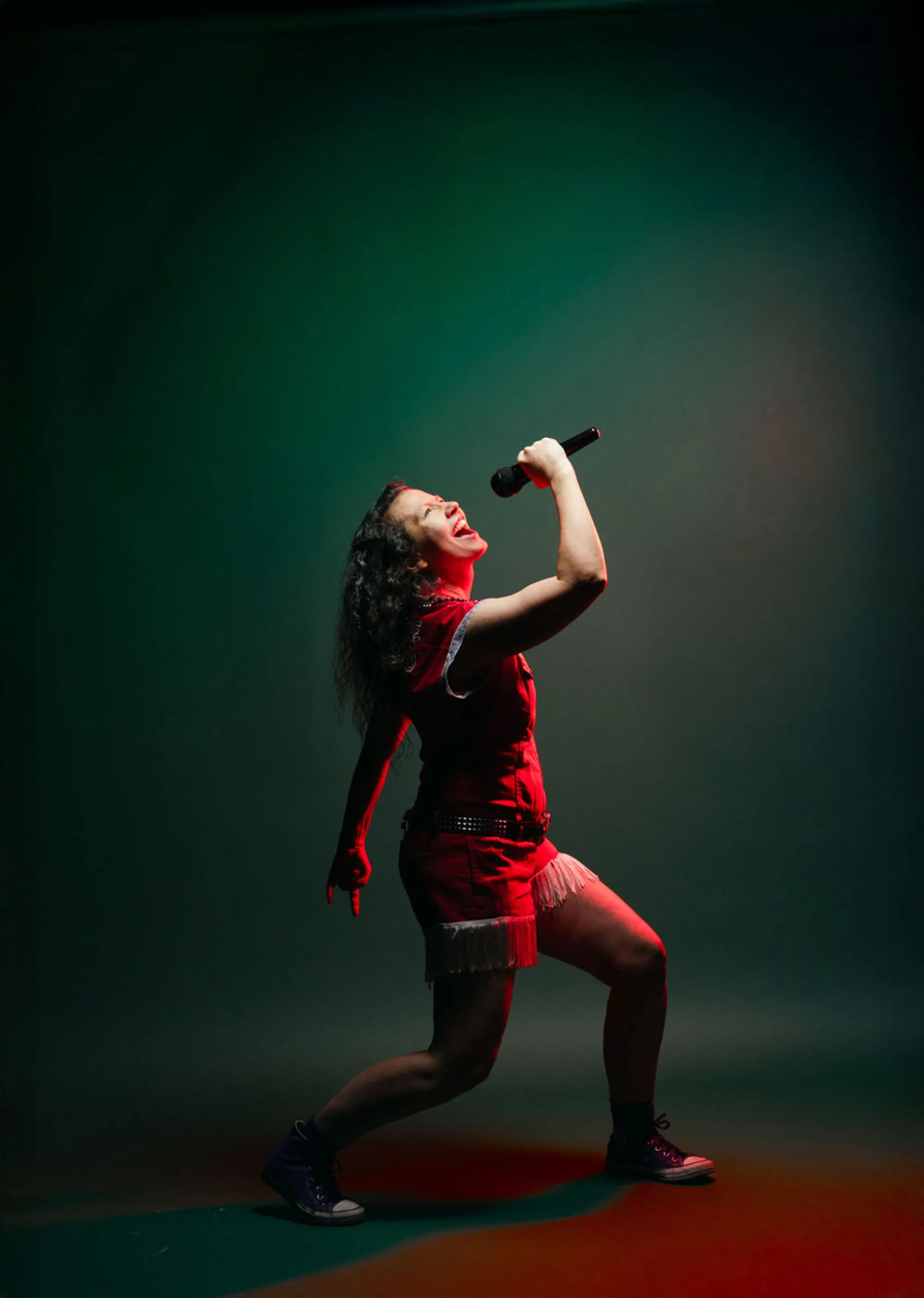Staff Creatives: Dianne Whitehair

Creativity runs high among College of Fine Arts staff members, both in their day jobs in the college supporting our research and educational mission and in their personal lives. The college has an unusually high number of practicing artists, musicians and performers — many of them alumni — on our teams.
Dianne Whitehair is the ticketing systems manager for Texas Performing Arts.
How many years have you worked in the College of Fine Arts?
I started working with Texas Performing Arts (previously Performing Arts Center) in 2008. Previously, I worked at a big arena, the Frank Erwin Center. However, I have handled the Performing Arts ticketing systems account since 2000, and I sold their tickets and did technical support as a part-timer since 1991.
Describe your creative practice.
Full plate and always swimming in it. Depends on the art I am doing, but nothing is really planned! When I write song lyrics, they can come at any time. Usually when I am very busy. I tend to have a running notepad on my laptop and phone. I can jot those random lines down. If I am driving and it is just too good of a line or title of a song in my head, I'll record it if I can without wrecking — "record it if I can without wrecking" would be a good title of a song.
My partner, Wonderbred (Steve Larsen), is in the studio 25 hours a day. Seriously we have a recording studio in our house, so he is in there all the time creating and producing and I can hear it while I am in my office across the house — lyrics pop in my head, and I'll jot them down. Then 10 minutes later, he moves on to a different instrument and beat! It is chaos, but somehow, we manage to throw music together!
I use an old-school way to finally put the lyrics to a loop of music of a basic chorus/verse part start of a song using a device to play the track and record myself and a keyboard to get the melody, etc. Eventually I come up with the basic parts and go in the booth and record. We start doubling tracks, coming up with more parts, and the song just grows.

When we came out with Scorpio Rising's first release, Scorpio Tales, I used what we called the "John Lennon method." I worked a late-night technical support position at the Frank Erwin Center with a lot of downtime. I had two cassette tape decks in the office. One deck would play the raw music tracks while the other would record me singing lyrics over the jams while it played. I pretty much use this method to this day with different devices: phone/laptop to get the song worked up enough to take it into the studio and lay it down.
From there, it is a whirlwind of work that Wonderbred takes on. He is the core reason Scorpio Rising exists. He has an overflowing catalog of music, and he never stops creating it.
How did you get started in your creative practice?
I have always been deep in some sort of creative-ness since I was young with music, art, dance, multimedia and even athletics, which is art. The past 36 years I have spent performing in my bands with all original music, which I started as a dancer. When I joined my first band, it was during the era of the "fly girl.' Jazz, which morphed into a hip-hop style, is where I landed.
Wonderbred started investing in studio gear as we were playing out all over Texas, mostly every weekend, Thursday – Sunday gigs. When at home, the studio work was a focus, and Wonderbred wrote so many tracks, I started putting words to them, and the rest is herstory as far as Scorpio Rising. We ended up winning the Best EDM/Dance band at the Austn Chronicle Music awards back in 2015–16.
I am coming from an era when we wrote an album of songs, recorded them, then jumped in a van to go play venues all over the nation for people to hear and see your music. The craft has changed so much that a song now is created, produced and distributed online, and the touring part has been cut down or none at all for some artists. Don't even get me started on that subject!

What does a typical day look like when you’re balancing both your work and creative passions?
So, it is never balanced. I am not sure if I know what that means. I have been on a stage, literally, almost every week in some city since 1989 up to March 2020 PANDEMIC LOCKDOWN.
Always touring, playing and jumping on my laptop to create another performer’s show has been what I have been doing up until now.
I also run camera op- for livestreams and video boards, depends on the job. (LOVE IT)
My work at UT and my art...it is me 24/7. My position with Texas Performing Arts is a huge demand of my life. I manage a robust ticketing system that harnesses a database a lot of other systems rely on. The performances at our venues start with the ticket-buying experience, and that is very important to me to be flawless. I create all the events on our systems, which encompasses so much that people would be very surprised at how it all really works and comes together. A colleague of mine and I always say, "We are crazy people" because really, if people only knew what it takes to build a show, promote it and get it in stage — it is a giant lift of information, technology, teamwork and super chaos.
That is what I mean by I do not really know what "balancing both your work and creative passions" means. It is one big life passion, 24/7 for me.
Any advice for students as they think about their professional pathways?
Not sure if I should be the one giving advice! Have goals and keep your eye on the prize. Be good at your craft, no half-assing. Sometimes the prize changes. If you're thriving to be a CEO and take on that type of competition, you better be cutthroat and thick-skinned, and the same goes for art. Songs, paintings and choreography can be delicate and deep. Rejection will be experienced more than acceptance.
GET IN WHERE YOU FIT IN, and it may take a while to find that place, but I only hope you do and are comfortable in it. The time between starting something you love and getting what you want may be completely different when you get there.
Networking yourself, and relationships are important. You will be amazed how they come in handy when you least expect it, which could be years.
Nothing is fast. Today you may find fast acknowledgment and could be a viral specimen of your art, and all good if that works. We all cannot be Taylor Swift. It is a fact that she is one of the ones who managed to hit all the lucky, right-time boxes and got there, which is great! Good on her, but for all the rest of the people that make art who have the same talent, passion and drive, do not stop.
It is your baby. What you make is yours. Do your craft and enjoy it, and then it is not called "practice," When it starts to become a "chore," check yourself and tap that passion. The drive will take you to hopefully a finished piece you can show or play or let someone feel your art. You should want to do it.
How do you define success as an artist? How has that definition evolved over time?
You make it, polish it and then throw it out there and just hope someone, just one person... grabs its, takes it and connects. This can be a song, sculpture, mural, a dance. It would be great if it could be 1 x 100,000 people, right? Is that success? Fame is different. If one person can connect to my art, it succeeded.


